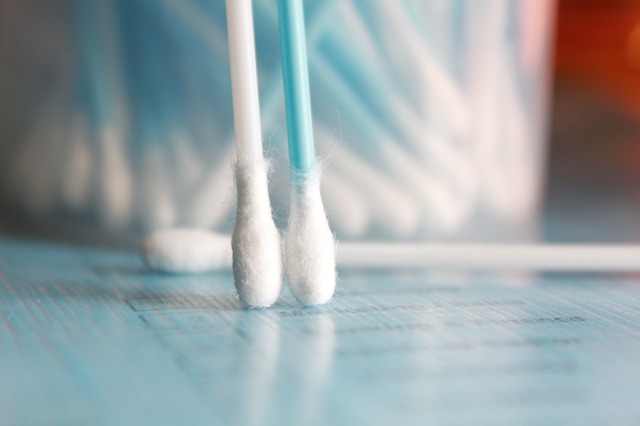5 Things You Think Are Healthy … But Aren’t

Health fads are nothing new. The Atkins diet was conceived in the late 1950s and swept the country with popular fervor in the early 2000s, and right now CrossFit workouts are all the rage across American suburbia. Some might even say that flossing is a health fad that we’ve all been doing since time immemorial — or at least since we were children. But what if these health fads, trends, and practices aren’t actually all as healthy as you think? Here are five things you think are totally healthy … but actually aren’t.
1. Cleaning Your Ears
Swabbing your ear with a little cotton ball stick? Some people have experienced this form of ear canal cleansing since before they could walk. Parents too often perpetuate the practice of shoving a Q-tip into the ear to clean it, even though professionals are now recommending the opposite.
“Some people are prone to produce too much earwax. Still, excess wax doesn’t automatically lead to blockage,” write Healthline professionals Ann Pietrangelo and Kristeen Cherney on their page all about earwax buildup and blockage. “In fact, the most common cause of earwax blockage is at-home removal. Using cotton swabs, bobby pins, or other objects in your ear canal can also push wax deeper, creating a blockage.”
So think twice about cleaning your ears with anything insertable. Earwax buildup can cause hearing loss, tinnitus, earache, and infection. Instead, try alternative cleaning methods like ear irrigation or hydrogen peroxide drops, and save the Q-tip for your outer ear.
2. Flossing Your Teeth
Another habit that’s been essentially hammered into us from a young age is proper dental care. So it may surprise readers to learn that flossing (something most of us were probably never very good at anyway) isn’t actually as healthy as we once thought.
An investigative report by the Associated Press has recently called into question whether or not flossing is actually proven to be healthy. The experts at Groom + Style cover this topic in depth on their blog, but here’s why they say dentists have always told us to floss in the first place:
- Regular flossing helps to prevent the formation of cavities.
- Regular flossing helps to prevent gum disease.
- Regular flossing helps to clear plaque from between teeth.
“The thing is, all three of those points are true, flossing does help to prevent gum disease and cavities, and it does help to clear stubborn plaque,” they continue. “The problem is that, if done incorrectly, flossing can damage teeth and gums, and when there are other options for reducing the risk of gum disease, plaque buildup and cavities, the necessity for daily flossing becomes suspect.”
3. Exercising … Too Much
For many of us, the problem is that we exercise too little … so it might surprise you to find out that there’s an entire world of people out there that actually exercise too much. There are obvious example of over-exercise; the man who gets addicted to getting pumped up and starts taking steroids is one of the more obvious ones.
On the other hand, there are those who simply get hooked on being active, and don’t allow themselves days of rest. Perhaps it’s because they enjoy the runner’s high and the positive mental effects that come with it, or it’s because they want to achieve results faster than their body can handle, but the simple fact is that it’s a lot easier to overwork yourself than you realize. This can put serious strain on your body, including your joints, and result in serious injury.
Another note: remember to stretch thoroughly before and after your workout. Staying limber will help you keep from pulling anything.
4. Diet Fads & Toxin Cleanses
Americans have been trying out and improving upon “lifestyle” diets for years now — but do they really work? There’s a lot of information here at MyVirtualMedicalCentre, but the long and the short of it is that nothing beats healthy, balanced nutrition. Most fad diets work in the short term, but over the long term are unsustainable. Oh, and “detox” diets? Technically, there aren’t toxins in your body that need help being removed; that’s mumbo-jumbo.
Still, one of the main reasons that people feel the need to “cleanse themselves of toxins” is that they feel sluggish and without energy. This is honestly probably because they’re simply mentally fatigued. Try these four quick activities to help boost focus and energy:
- Take a brisk walk. Even 10 or 15 minutes can raise your heartrate a little and contribute to some pep in your step.
- Do stretches and yoga. These can help work out kinks and improve extension, flexibility, and circulation.
- Dance. Put a little music on and get your groove thang on.
- Stand up. You don’t have to go crazy — and sometimes you can’t do much else. Get up, move about a little bit, and take your mind off of your work.
Nothing beats well-balanced nutrition and a little activity here and there. Stay away from fads, don’t eat anything toxic, and practice micro-exercising.
5. Unverified Alternatives
Speaking of fads, unverified alternative medicines like homeopathic remedies and healing crystals … well, they may not be as healthy for you as you think. This statement isn’t meant to undermine the power of positive thinking, but it is meant make readers and practitioners think hard about using it as their sole means of medicine.
This is exactly why clinical trials are so important. Not only does the National Institute of Health (NIH) evaluate the safety of drugs and therapeutic practices, but also just how effective they are. If an alternative medicine isn’t verified as effective by the NIH or any other federal agency, then they aren’t. Taking just unverified medication could be signing your own death warrant.
All in all, there aren’t too many shockers here — but your health is precious, and you should do everything to protect it. Next time, think before you act on impulse and your learned assumptions. You might just be doing something you think is healthy, but isn’t.
Would you like to receive similar articles by email?






One Comment
Varun Sharma
Thoroughly read your article. It will really help me out in the future. Thanks for sharing.